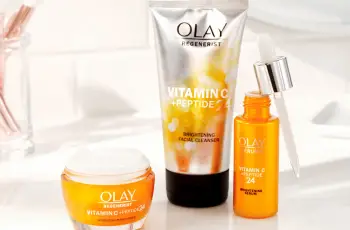
Retinyl Palmitate in Skin Care
Retinyl Palmitate (RP) is often found in skin care products that say they have retinol.
Retinyl palmitate is an ester form of a retinoid, but it is not the same as retinol.
Retinyl palmitate vs Retinol
Retinol is much better than retinyl palmitate.
5 reasons retinol is better in skin care products than retinyl palmitate:
safer
absorbs better
stronger
more effective
does not turn into a cancer causing ingredient in the sun
Is Retinyl Palmitate Dangerous?
It has a bad reputation because it has been shown to cause skin cancer in mice. Is the fear of retinyl palmitate toxicity justified? Is this Vitamin A palmitate cancer causing? Are skin care products with retinyl palmitate a danger? What is the controversy about retinyl palmitate safety? This blog will review the data so you can decide for yourself. This brief video will tell you some of my thoughts about the dangers of retinyl palmitate.
Retinyl palmitate vs retinol
Is Retinyl Palmitate a form of Vitamin A ?
Yes, both retinol and retinyl palmitate are in the retinoid family. These forms of Vitamin A are very different however. Retinyl palmitate is a combination of retinol and palmitic acid: a saturated fatty acids that comes from palm oil.
Retinol penetrates into the skin and is known to help acne and aging, while retinyl palmitate does not penetrate as well and may have dangerous side effects. Retinyl palmitate is found in many skin care product that claim they have retinol because it is cheaper than retinol. It is better for you to use skin care products with retinol instead of retinyl palmitate products.
We can help you find the best skin care products for your Baumann Skin Type. Why guess what products are safe to use when we can give you specific advice from our dermatologists? We take all of this into account when we design your skin care routine and give you product options from many different brands.
All you need to do is take the skin type quiz.
Is retinyl palmitate safer than retinol?
Retinol is much safer than retinyl palmitate.
Dangers of retinyl palmitate
Toxicity
Retinyl Palmitate was the subject of a controversial summer 2010 report by the Environmental Working Group (EWG) in which the organization warned of possible photocarcinogenicity associated with RP-containing sunscreens. The EWG rates it as a 9 on the safe scale (1 being the most safe or “best”) and 10 being the least safe or “worst”).
The Scientific Committee on Consumer Safety (SCCS) deemed vitamin A in cosmetics safe at concentrations of 0.05% Retinol Equivalent (RE) for body lotion and 0.3% RE for other leave-on and rinse-off products in 2005. (18) However, when considering the overall exposure to vitamin A from all sources, including food and supplements, the SCCS could not reach a definitive conclusion due to inconsistencies in model calculations. They highlighted a concern for the segment of the population (5%) with the highest exposure levels to vitamin A, as their intake from food and supplements might already exceed the recommended upper limit. The addition of vitamin A from cosmetics could potentially increase this risk, although cosmetics contribute less to total vitamin A exposure compared to food sources. The SCCS stated that determining maximum concentration limits for cosmetics that account for other sources of exposure falls outside its remit, implying that managing the risk associated with total vitamin A intake is a broader issue that extends beyond cosmetic products alone.
When is it ok to use retinyl palmitate?
Retinyl palmitate is safer in these situations:
Used at night and washed off in the am
When used in the daytime and covered by sunscreen
When it is in a very low concentration in a skin care product and not much of the product is used but we do not know what a safe amount is. (12)
When it is in a product like a cleanser that is rinsed off before going in the sun
Use it over an antioxidant serum to neutralize any free radicals
Retinoids and Cancer
The vitamin A family includes retinyl esters, retinol, tretinoin, adapalene, tazarotene and oral Accutane in addition to four carotenoids, including beta-carotene, many of which have been shown to prevent or protect against cancer (1,2,3,4,5, ) That does not mean that Retinyl Palmitate prevents cancer just because oral retinol, beta-carotene, or tretinoin have been shown to. In fact, the study that the EWG refers to shows evidence that RP may lead to skin tumors in mice.
retinyl palmitate turns dangerous in the sun
Why Does Retinyl Palmitate Turn Dangerous in the Sun?
Of the eight in vitro studies published by the FDA from 2002–2009, four revealed that reactive oxygen species were produced by retinyl palmitate after UVA exposure. (6,7,8,9,10)
Even though it seems clear that retinyl palmitate leads to free radicals, it is still not known if it causes cancer in human skin.
Using Sunscreen with Retinyl Palmitate
Sunscreens such as Avobenzone and octyl methoxycinnamate have been shown to stabilize the breakdown of retinyl palmitate that occurs with UV exposure. (11) So if you must use a retinyl ester like retinyl palmitate, use it with a sunscreen.
Side effects of retinyl palmitate
As with all retinoids, retinyl palmitate can cause:
redness
scaling
peeling
itching
Our Dermatologist Tips and Recommendations about retinyl palmitate and retinol esters
In 1997, Duell et al. showed that retinol is more effective at penetrating into human skin in than retinyl palmitate. (13) So there is really no reason to use retinyl palmitate when you can use retinol instead! The slow penetration of RP into the skin allows RP to remain on the skin long enough to undergo a photoreaction and generate reactive oxygen species (Free radicals). These reactive oxygen species or free radicals can theoretically lead to increased skin cancer.
In light of the controversy swirling around RP, the appropriate concern it has caused, and the weight of evidence, I advise patients to avoid daytime use of products with retinyl palmitate high on the ingredient list. I feel that it poses real risks while offering minimal benefits.
Use retinol, tretinoin adapalene, tazarotene or trifarotene instead
Use retinoids at night
Retinyl palmitate does not penetrate very well into the skin. Consequently, for cosmetic topical retinoid formulations, I recommend retinol instead. That said, sufficient evidence to establish a definite causal link between RP and skin cancer has not been produced.
Looking for the best products for your skin type? Shop by your Baumann Skin Type and stop wasting money on the wrong skin care products.


